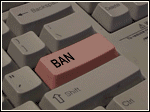Why is it that Americans refer to 24 hour time as military time? I understand that the military uses the 24hr format but I don’t understand why the general public would refer to it like that?
It makes it seem like it’s a foreign concept where as in a lot of countries it’s the norm.
In the US, the 12-hour clock format is in widespread use, except in the military. That is why it’s called like that.
It’s interesting that it’s not as widespread amongst the public.As far as I know, the rest of the world either uses it or is able to understand it whereas I’ve had the opposite with Americans. I’m a very limited sample size though.
Americans understand it just fine.
Just like I understand what a meter is, but in real life, I would NEVER use the meter as a unit of measurement.
Yeah, I know metric is the better system, I agree. This isn’t about that. It’s about saying something and not making the listener take a moment to convert it into how they relate to the world.
Americans do not understand it just fine. I’ve had my phone on 24h time for years and the amount of fellow Americans who are completely baffled by it baffles me.
I’d say that’s probably more because they are morons and not because they are American.
I mean, can be both
Look up the “theory of American exceptionalism”. In short there is a very strong belief here that America is one of a kind and things that may work for others simply don’t apply here.
Explains why the US stocks a 12hr clock, messed up month/day/year mission, imperial measurement and a ton of other things that any foreigner will find anywhere from quirky to infuriating.
IMHO the exceptionalism theory is a b.s. lazy way of keeping things conservative and unchanged and shutting down any discussion of uncomfortable progress.
It’s not even imperial measurements - the US has its own customary units.
US and international date standards all suck : ISO8601 on the other hand is beautiful
There was a theory I read at one point, that for the life of me I can’t remember the name of, that basically described a generalized form of exceptionalism, but for different categories.
Basically, the “most something” countries in any particular category are going to have exceptional circumstances that make what other countries do not always apply.
India, having the largest population, faces demographic problems that solutions that work in the Netherlands just can’t address.
Same with Russian transportation infrastructure, and ultimately American economic issues.“American Exceptionalism” also known as “Europeans are obsessed with America and can’t understand why American’s don’t follow their orders, meanwhile the Danes count like Barbarians and the UK hasn’t picked a system”
I could give a shit about following orders, it’s a lot easier dealing with international business/trade/politics.
If everyone is on the same page, things are easier. I like the metric system. I’m a mechanic and my life is often hell because of the differences.
Ah yes, the two halves of the world, America and Europe.
On the english-speaking internet? Pretty much, plus the Aussies and Canadians.
You can make a “I hate you so much” “I don’t think about you at all” meme out of it if you want, but the fact is that American media, most notably Hollywood has an immense cultural impact in the western world. People are often confronted with the weird system that Americans use, but not the other way round, let alone come across something like the danish numbering system. It’s less obsession and more unpleasant regular occurances that lead to such strong opinions about the American system.
Well then make your own movies and shows then. Im not really seeing the problem.
We are, and plenty of em.
They just aren’t in English.
So if we look for English content, we encounter fantasy metrics where you guys measure in the feet of a long dead king, and the idiotic AM/PM system that goes from 11 AM to 12 PM and then to 1 PM.
Why are you so obsessed with what Americans use for measurements? They aren’t forcing or even asking you to use it
Ok, then why blame us? “Oh no. Someone put up a sign for burgers and when I went inside, they had burgers! Im going to blame them!”
Also, plenty of countries use both 12 hour and 24 hour time. Its not hard.
Thank you for sharing that! I’ll have a look into it.
It’s standard in Canada as well. I prefer 24hr personally. There were a couple times where I’ve napped in the evening, and woke up thinking I was late for work in the morning. Not fun. 24hr clock solves that. Plus it just makes more sense to me than 12hr clocks.
I have no strong opinion but I’ll give some reasons that people don’t often consider.
Analog clocks are often easier to understand visually for people. A typical person will be awake for 16ish hours of the day. Which means that when looking at an analog 12 hour clock, you can easily see where you’re at in your day. That is both harder to do on an analog 24 hour clock and it also doesn’t make sense because you won’t really ever see 1/3rd of the clock get used. Military is forced to use it because the time is all digits which makes confusion less possible and displaying it easier.
When talking about the digital version, again, it reflects how humans experience time easier. Again consider using a clock in which you will not typically see or use a third of the numbers for anything. Why do that?
I think a lot of what bugs us about these two systems is the zero points. If I could redo it, I’d put 12am to line up and make 6am noon. Then 6pm is now evening/night.
I suggest that because the current 12hr systems are set up to benefit capitalism. It’s meant to make you forget how long you’re working in the US. And telling people that waking up at 5am to do stuff is morning is also stupid. It’s still night time at that time and our clocks don’t reflect that at all.
I’ve never even seen a digital clock that’s not 24h. I actually can’t see at all why it would be easier to see where you’re at in the day with the 12h AM/PM lol. Definitely an American thing.
I mean it’s a minor difference and you get used to both systems, but like I said, by cutting the scale in half from 24 to 12 you’re magnifying the difference in time. For instance, 3 to 6pm on 12 hour clocks is 25% of the scale whereas it’s actually 12.5% of the overall day on 24hr scale. But you don’t experience the overall day, you sleep for a big chunk of it. In other words, the 12hr clock is more appropriately representing that time to you as a portion of your waking day.
Consider this: if I told you the time in an accurate but larger quantity, how would it look to you? Like if I told you that my clock is 48 hours and resets every two days to go from 0 to 48, wouldn’t it change your perception of time? It creates dissonance that a 3 hour meeting would feel very long and yet it is such a small portion of your two day clock. That’s kind of how Americans feel about 24hr clocks.
You think you are magnifying things, but you aren’t.
The minute hand on an analogue clock goes equally as fast whether you use 24 hour or 12 hours.
In fact you are even losing accuracy, because if someone tells you to be there at 6 o clock, you have 2 possible times. Whereas with 24, there is only one possibility.
That is why you need to specify with AM and PM.
And in a digital clock it matters even less.
Now explain to me like I am 5, why does a 12 hour clock go from 11 PM to 12 AM to 1 AM?
Why is that 12th hour considered the start of the 12 hour cycle, instead of the end?
I guess I’ve become the 12hr clock simp here (I’m not tho, use whatever) so here I go.
Forget the minute hand. If I have a 24hr clock, the hours will be more crowded. Meaning that the per-hour angle of each number is halved. I’d imagine this somewhat limits clock design or runs the danger of being harder to tell which hour you’re actually on with a short hour hand. The numbers must be smaller and the hour hand must be longer for the same accuracy.
And yes you are losing technical accuracy with a 12hr clock. But a few things about this. Again it’s more about that humans actually experience time in smaller segments than 24 hours. You don’t experience a full 24hr day. You usually experience a smaller segment like 12-16 hours. This is especially true if you divide your time into day/night or work/leisure.
Now the obvious downside like you mentioned is the am/pm thing. However, that usually isn’t a problem and I don’t get how people would reference 24hr clocks in conversation. Do they say “yeah sure, we can grab drinks at eighteen hundred” or “eighteenth hour” or do they just say eighteen? (American problems).
It’s usually not a problem because context goes a very long way. If I ask you to grab lunch at 2, obviously it’s 2pm. If I ask to grab drinks at 8:30, it’s pm. Most social events come with a time context and most social events are in the afternoon. There’s surprisingly little overlap between events that would be early morning/late evening.
And yes I know digital clocks the formats matter less. It’s a preference thing, no one should care much.
As for the reason for 12 being the changeover time, it’s all for analog clocks. Looking at an analog clock, when determining the hour you draw a line out from the hour hand. Whatever is the nearest number counter-clockwise, that’s what hour it is. So the 12th hour exists. Otherwise you’d have it go from 11:59 to 0. And zero o’clock makes no sense, especially at noon. Again, no clue how anyone would reference this in 24hr. Half passed midnight maybe? But again if you can say pick me up from the party at 12:30am, you don’t have to reference midnight but people still do sometimes.
As for 12am vs pm, it’s simply because the clock transitions at its apex. If it didn’t, it’d be confusing. Also 11:59 is midnight in either system, so it’s the middle of the night. And it creates an obvious transition for midday to exist.
I hope that clears up why the system exists and why I personally prefer it. Again, use whatever works, but I promise the system works pretty well for everyone that uses it. The more disruptive thing is daylight savings time, not the system itself.
It’s definitely not standard in Canada. I wish it was. Every time I buy something, I have to figure out how to swap it to 24h mode.
Sorry, I meant 12hr is standard (agreeing with Nemo’s original comment).
It’s veeeeery not standard in Canada. I use it on my phone and most people who see it on the lockscreen treat me like I’m an alien, and it’s about a 50/50 mix of people who simply think 24 hour time is weird (but at least recognize it) vs. people who seem genuinely baffled by the digits they see appearing on my phone and don’t even seem to recognize it as a time at all.
I live in the US and I’ve never met someone who isn’t able to understand it. They might need to convert it in their heads to compare it with other times.
You’d think 24 hour watches would be more common than they are especially among European watches.
My kid had the hardest time reading a 12 hour clock. I think am/pm is too abstract for young kids. 24 hour makes more intuitive sense. The number resets only at the end of the day.
As far as I know the Japanese use it aswell. I learned 午後 and 午前 as vocab at least. (Am and pm)
We don’t use it in Canada, expect military or hospital records.
Quebec would like to have a word with you.
Then again they also have some opinions on that whole ‘Canada’ thing too.
There is a cultural phenomenon called schismogenesis - the tendency for one culture to define itself by how it differs from other cultures around it. Even in cases where the culture Y approach is “better” by whatever metric, culture X people will reject it because it’s a Y thing and not an X thing. I see the US rejection of the metric system under Reagan being the most glaringly obvious example of this, but the time thing is probably part of it, too.
I just really wish we hadn’t gone with the whole base 60 system in the first place.
I think I once read that when the metric system was first defined during the French Revolution, they also tried to use a decimal system for time, but that was quickly abandoned.
Why the hate for base 60? It has its roots in Babylon and also forms the basis for angles in geometry.
I am not a baseist. Some of my favorite algorithms are base-2.
Base 60 is so handy though. Very divisible.
I kind of wish we had gone all the way with base 60
Adding on to that most civilians are only exposed to 24 hr time in a field that was either organizationally based off of the military such as police or emergency medicine or in fields where it’s important to have precise time keeping like hospitals
We don’t use it in Canada, except military or hospital records.
Because the average American is much more likely to bump into American military personnel than people from countries that use 24 hour time. It’s really as simple as that.
And this isn’t because we’re uncultured swine, it’s because we’re separated by two oceans from most countries.
not mutually exclusive
The entirety of South America uses 24hr time.
Which is a few countries south of the US and connected to NA by a nearly impassible forest and no roads… Might as well be another ocean.
deleted by creator
Australia has entered the chat
Australia isn’t real.
Paradise, Heaven, Eden, Australia, whatever it is.
It’s a penal colony…
The entire US logistics chain runs on 24 hour time, even the 100% domestic aspects.
The logistics chain would also save tens of billions of dollars in lost revenue every year if we ended daylight savings time and time zones, and collectively is one of the biggest lobbies for those changes
I would love to know why if you have more info to share
Logistics uses 24 hr clocks to be as precise as possible
The reasoning for lost revenue is a long story, but to heavily TLDR it, the entire logistics chain is basically a giant house of cards, and every mistake compounds repeatedly. Everything from a scheduling error at one warehouse to a driver not knowing about weird time zones (like AZ), to international miscommunications, all pile up on both their own individual load/order and every other step in the chain. A mistake at one manufacturer rolls to the next manufacturer, which then snowballs to the receiver, influencing timing on the last mile delivery.
Because of the heavily interconnected nature, any mistake in documentation, ordering, or timing causes significant delays and missed revenue elsewhere.
Thank you! That makes sense, i appreciate your time and thoroughness of your response!
Lots of good answers here, but I don’t see anyone mentioning the minor differences between military time and 24 hour. With military time, they don’t use a colon when writing it, and they always verbally say the leading zero. So a time using a 24 hour clock is written 06:00 or 6:00 and said verbally as “six o’clock”, but with military time, it is written as 0600 and said verbally as “Oh six hundred hours”.
That’s it. That’s the only difference. Though many Americans do indeed incorrectly call any 24 hour clock “military time”. I myself used to say it incorrectly when I was a kid because my parents said it incorrectly.
Like the bastardization of the 24h clock by the television companies, doesn’t Amarican military time also allow for relative time instead of absolute? Like writing 5:00 on the second day of a time critical mission as 2900?
I’m pretty sure I heard this somewhere, though I have yet to verify this claim.
Sort of? Ime you’ll sometimes hear/see things like T+2900, meaning 2900 minutes after T (T being a common placeholder for “the moment the operation began”). But unless the mission started at 0000, T+2900 doesn’t mean 0500, it means +2900 since T
By the time I solve for T, the mission will be over.
I guess that does make sense, and definitely not as bad as I had misunderstood it to be.
It feels a little weird, and I’m not sure if T+29:00 or equivalents are allowed in ISO 8601, but I have seen computer programs that represent time differences in similar ways.
Thank you for the clarification!
Related question. Do 24 hour clock folks say fourteen o’clock if they’re talking about 2pm?
I’m german. if it’s completely unambiguous, we simply say “dinner is at 6” or “my shift ends at 4”. but when you want to make sure that there’s no room for confusion we say “let’s meet at 21 o’clock”.
In French, it’s pretty common to say 14 o’clock.
La fête est à quatorze heures.
Which is French for “I expect you’ll show up some time between 15:00 and 19:00.”
In my country younger individuals like me use the 24 hour system a lot verbally. Older generations from before smartphones (which always use 24 hour) uses the 12 hour system more.
But in general I would argue that people use the 24 hour system when talking about something which needs precision, like when the train arrives. And the 12 hour system when talking about something like when to meet a friend (it’s still very important to arrive on time though, regardless of how imprecise the time was, “about five” means five.)
They say fourteen hundred or 2 o’clock. I’ve never really heard anyone say 14 o’clock.
We definitely just called it 14 where I grew up
We called it 14 in Alabama. You’re talking about age of censent, right?
In both Polish and German people say fourteen o’clock.
“It was a bright cold day in April, and the clocks were striking
thirteenfourteen”
In Denmark we say “2 o’clock” or just “14”, sometimes also “14 o’clock”. No one says fourteen hundred, except perhaps for a few military wannabes.
If it’s quarter past 2, we’d usually say “14-15”. Half past 2 would be “14-30”, you get the idea.
If we mean to say “from 2 o’clock to 3 o’clock”, we’ll say “14 to 15”, which I imagine can be confusing for the uninitiated, as the only difference from “quarter past 2” would be a “to”.
For those downvoting me, what do you say? I imagine it must be other Danes or neighboring countries, as one surely wouldn’t downvote a culturally dependant statement if not from said culture.
Same in Norway, unsurprisingly, but we do say 14 0 0 (fjorten null null) if making it clear that we mean 1400 exact. Otherwise like you said, klokken 14 or klokken 2.
1400 (fourteen hundred)
So they say 17 o’clock?
Mil - seventeen-hundred Civ - seventeen-o’clock
As a civilian who uses the 24h system, I say “five o’clock”, but write “1700”
I say 17 o’clock.
Doesn’t military time also use 24th hour followed by hour 1 instead of 0?
Army here, we always say 0000 for midnight, but honestly that’s probably just because it’s what our phones and watches call it. Perhaps it was different before electronic timekeeping was the norm.
That’s interesting. Marine here and once when I was deployed and writing up “significant event” reports for briefs, the Watch Officer never wanted to say 0000. He thought it would be too confusing when looking back and trying to figure which day it actually was. Is 0000 on 20231023 Monday at midnight or Sunday at midnight? He had us use either 2359 or 0001 and the date to clarify. 0000 didn’t exist for him, but it might have just been his own personal pet peeve.
It’s pretty commonly done with 12hr time too, for the same reason: to help protect against stupidity.
00:00 is the time with the new (“tomorrow”) date, 24:00 is the time with the old (“yesterday”) date.
24:00 isnt really used, in my experience. Also, many people dont mentally switch dates until they went to bed.
Watch officers HATE this one ambiguous millitary time/dating convention
That’s interesting. How do they say it out loud? If 6am / 6:00 / 0600 is said “oh six hundred”, is 0000 “oh oh hundred”? “oh zero hundred”? “zero thousand”? “quadruple oh”?
Oh-zero-hundred or zero-hundred if we gotta. Generally… Midnight lol
oh oh oh oh
zero zero zero zero
oh zero hundred
midnight
twelve
what a trip
Zero-Dark-Thirty
Its because in America most people’s only experience with it is when the movie says “meet here at 0700 hrs.” Really isn’t much deeper than that, we also call “ranger green” “ranger green” whether an army ranger is wearing it or not, despite it really being “just a shade of green.” Sometimes things are just called things.
If this was a case of things just being called things, it would be its own word. For example, a door is called a door because things are just called things. But military time is obviously a reference to something entirely different, that doesn’t actually have anything to do with time. So there’s more to it than just being called that.
Ranger green is called like that, because it’s the shade of green rangers wear. And not “just because”. Same with military time. It’s called like that because people associate it with military, be it from seeing it in military movies, or by using it in the military themselves.
Ah but when is a door not a door?
When it’s ajar.
Where’s lemmy gold when we need it?
+10pts
When it’s a painting
When it’s a window.
There is no spoon.
“Ranger Green” the hell is that?
I’m an army veteran and I’ve never heard that term. Army Green, yes, but that’s pretty rare, too.
What color even is “Ranger Green” other than OD?
Do I look like a swatch to you?
Just remember, civilian Americans aren’t the one who named the time system that includes “Oh Six Hundred Hours” Military Time. It was the Goddamned Military. And when the Goddamned Military fucking tells you what something is called, you fucking call it that. No questions.
So we could flip our clock displays to 24 hour time and meet at 14 o’clock, but we’d still be civilians and unworthy to use Military Time. So why bother? Working 9 to 5 is bad enough, working 9 to 17 sounds too fucking exhausting.
Wow, 9-17 really does sound like a long fucking day, whereas 9-5 sounds way shorter.
But they’re both the same and both far too much time spent at work.
8 hours vs. -4 hours. I know what shift I’m picking, suckers.
Joke’s on you, have fun with your 20 hours shifts.
0900-1700
The military have longer days than us plebs. They have twenty-four hundred hours when we get a measly twenty-four.
Unfair.
as an american i must say i HATE this as well. people ask me why i use military time and i say it’s because there are 24 hours in the day so it makes much more sense to me. and that in other parts of the world they call it international time with the military having nothing to do with it.
makes me wanna scream. thank you for letting me go off.
I keep telling people metric time is where it’s at but they just look at me like I’m crazy
obviously we should all just switch to metric time lmao
Time is not metric
Pshh I bet you use acoustic time.
What?
Just to be devil’s advocate:
Time is not really not metric, either, to be absolutely fair. The 60/60/24 thing is mostly just a continuation of the sexagesimal system used by the Babylonians.
There are also plenty of instances in history where civilizations used a decimal system of timekeeping. Just a summary of the Wikipedia page on the matter below:
- Egypt: used in astronomy, the decade, equal to 10 days, with 36 decades per solar year, with an added 5 intercalary days at the end.
- China: the shi and ke, equal to 1/10 of a solar day & 1/100 solar day, respectively, though this has gone in and out of favor with and without modifications due to China having a long-ass (and thus varied) history.
- Revolutionary France: 10 days per week, 10 hours per day, 100 minutes per hour, 100 seconds per minute. (Although, to be fair, most common people ignored it and just used the sexagesimal time base they had always been used to. Lol.)
Alternatively, if you make the decimal second equal to 0.8640… SI seconds, then that would allow you to have 100 seconds per minute, 100 minutes per hour, 10 hours per day, and still have clocks align with the solar day.
Hell, even our definition of the second is merely the number of “pulses” (word used for brevity’s sake) of the Cesium-133 atom that corresponds to how long our second is. In other words, our definition of the second isn’t based on objective truth; we just found an objective way to define the system we already use. Lol.
Mind you, I’m merely playing devil’s advocate here. As much as I love the SI, and the metric system in general (both modern and previous versions), and would not be opposed to switching to decimal time if mandated, I’m okay with the system we have now. I JUST FUCKING WISH WE ALL USED 24H FORMAT GODDAMMIT THE AMBIGUITY OF 12H TIME PISSES ME OFF JUST FUCKING WHY GODDAMN IT nearby explosive barrel explodes from proximity to blood vessels
tl’dr: Our conception of time as sexagesimal, and even based on the Cs-133 atom, is not quite as objectively based as one might be led to think. Also, fuck 12h time.
Edit: There are 36 “decades” per solar year, not 3. Lol.
Good comment. Thanks!
Isn’t the second defined by light traveling a specific distance in vacuum?
To add to that, I wish we all just used UTC. Time zones are useless, we could all just adjust to the universal time in local schedules.
Also: english could be renamed to common and it would make sense.
Isn’t the second defined by light traveling a specific distance in vacuum?
If we were to redefine the second as 0.864 SI seconds, then the new second would be defined as the time it takes light to travel 0.864x the current meter. Of course since the modern definition of the meter is defined as a light-second, changing the definition of the second would also change the definition of a meter. (One thread loose pulls another thread loose and all that jazz…) My point being that these are merely objective ways to define the units we already use, not objective proofs of said units.
To add to that, I wish we all just used UTC. Time zones are useless, we could all just adjust to the universal time in local schedules.
Although that would be absolutely fantastic in my opinion, there are uses to time zones. Most people’s sleep cycles are naturally calibrated to light levels, which vary from time zone to time zone. Originally, time zones were split into equal divisions of latitude across the globe 15° apart, for this exact reason, it being the most logical way to divide them by.
What I just want is nations to stop fucking this up by using nationality and cultural reasons to have vastly separate areas abide by the same time zones. I mean, for fuck’s sake, here is what they used to look like; here is what they are now. Good gods is that a complete clusterfuck… I mean, seriously, China used to be four time zones; now they’re one!
If we just used UTC people on Europe could sleep from 23:00 to 7:00, people from Japan could sleep from 15:00 to 22:00 and so on. There would be no need to “localize” time.
I suppose.
I remember hearing an anecdote that (I forget which band) got signed because they misunderstood the record producer when they requested a demo at 8 and showed up ready to play psychedelic rock at 8oclock in the fuckin morning
changing the value of a second is not really feasible nowadays, so instead i would propose to just remove minutes and hours, and use seconds, hectoseconds and kiloseconds
Not sure if you’ve had the same experience but I had an American colleague ask me what I meant when I didn’t give the time in the 12hr format. The message was something like, “I’ve booked the meeting for 14:00”
Similar things happen to me. All of my devices are in Spanish in addition to 24hr, so anything automated is sent in Spanish to my non speaking colleagues
I’m American but work on transportation where 24hr clock is…sort of the standard.
I prefer 24hr and use it on all my devices, but outside work I pretty much exclusively communicate with 12 hr. No point in using wording I know is gonna be misunderstood when I can comfortably swap between the two.
Knowing Americans they would’ve rejected it if it wasn’t called military time. In fact I reckon if you guys rebranded metric system to military measurements there might be more acceptance to it.
You tried…
It’s called genericide. They encounter the 24 hour measure of time primarily through the US military and its service members so all 24 hour time generally gets called military time.
Similar to why facial tissue is often Kleenex or adhesive bandages are Band-aids in the US.
Hardcore name
I was worried for all the geners.
I spent 20 years in the US military. I had to quickly learn “military time” in order to function, as we were taught 12-hr time growing up in school. I was surprised when I traveled the world and discovered that everyone else uses “military time” (read: international time) as well. I guess Americans just really wanna do their own thing.
I exclusively use military time nowadays. If someone doesn’t understand the time I stated, I’ll correct it to 12-hr time on the spot, as converting is super easy. Just count back 2 hours and drop the 10’s digit by one; e.g. 1600 = 4 PM. 2200 = 10 PM. Etc.
deleted by creator
Here in California, I’ve heard both “military time” and “24 hour time” used interchangeably for writing the time as “03:45” or “16:20”. That said, I’ve heard – citation needed – that proper military time does not use the colon, such as “1600”, pronounced as “sixteen hundred hours”.
As for why the public might refer to this generally as “military time”, it may just be that that’s the most common, well-known use-case in the States, outside of the sciences. I personally use 24 hour time on all my devices, but I’ve come across many people who prefer clockfaces or AM/PM, probably out of habit.
By the book, you’re right. No colon when written, and if the last two digits aren’t “00” they are supposed to be pronounced individually.
4:45pm = 1645 = “Sixteen Four Five hours”. (Or “Fooor fife” if you’re a pedant about radios.)
That’s all well and good trivia, in practice it’s usually said “Sixteen forty five” because yeah ain’t nobody got time for all that.
As a fairly-new ham radio operator, I need to improve my numbers pronunciation so maybe I’ll start reading the time like that and see how other people react.
Already, I get a number of confused-then-resigned looks when saying “sixteen o’clock” haha
I’ve heard the same with regards to proper military time not having the colon.
In Switzerland it works like that too.
“Normal time” for us is 24h with colon so 18:00
While “Military time” is without colon, so 1800 and is then pronounced as achtzehnhundert (eighteen hundred).
We don’t use colons in our time in the American hospital system. We use them for a lot of other things though. (Pun)
It took me a second to realise what the pun was…
Let’s go out to eat, I made reservations for 7.
Are we having breakfast or dinner?
Without context, tough to tell. That’s why 24hr is superior.
Dinner, because if it’s earlier than 7 AM and you’re inviting me to an impromptu breakfast, we’re not friends anymore, and I’m going back to sleep.
Saturday, I’m going to bed at 9. Forensic that one out.
Lunch. It’s 7 people.
Except that’s not actually an issue in practice. In a real-world conversation you would disambiguate with “Let’s get breakfast” or “Let’s get dinner” if you’re not referring to the immediate future. I honestly can’t think of a single time that I’ve been genuinely confused in this way.
Edit: Also, when would you ever make reservations for breakfast? Unless this is a joke that’s gone over my head.
Closest thing I can think of is making reservations for Brunch. Some places it’s necessary.
Brunch wouldn’t be at 7 though
The context is the am/pm after
The context is not always given though.
With 24hours, that context is always given.
I won’t disagree on that and do see your point, 100% context for sure
We do have more context than it seems though, if someone tells me to show up to work at 7, I can assume it’s a.m. If someone says they’ll meet me at 12, it’s going to be mid-day etc. If it’s 7 and bright outside it’s in the am, if it’s 7 and dark it’s p.m. It’s not too tricky with context clues
But, being my own devil’s advocate, you are right. No ambiguity in 24 hour time. I don’t have an issue with 24 hour time, was raised on 12 hour so it’s natural but 24 isn’t bad either, and is more exact in some ways.
I do prefer 12 hours though, makes the day feel shorter like working two 4 hour shifts instead of a solid 8. Same time but one feels shorter so I apply that to most days. As another mentioned, working a 9-5 seems short when compared to working a 9-17 😂
If it were up to me though, A.M and P.M would be visible on every 12 hour clock, I do agree it’s weird that some are made without it, sure it is easy to figure out whether a.m or p.m via context clues but having any ambiguity in a form of measurement seems odd, but making a dinner date for 7 and showing up at 7 a.m would be odd as well I guess, though not everything is so clear.
When it’s unclear I’ll say 7 in the evening, or 7 in the morning, 7pm, 7am. 7 at night, supper at 7, whichever one isn’t pitch dark. There are many ways to go about it.
The average American is likely to have more interaction with American service men and women than Europeans. Most Latin immigrants I know use the 12 hour clock. While the 24 hour clock is preferred in many countries, they are not the countries that immigrate to the US in large enough numbers to influence us or expose us to the 24 hour clock like our own military does.
Wait, how would you know whether migrants use the 24 hour clock?
You’re not supposed to say “we meet at fifteen thirty”, you just say half past three or, in non-English languages sometimes “three in the afternoon”.
You only write it as 24 hours because it saves you having to add extra letters to solve the ambiguity. When I interact with Americans I also write “three PM”, it’s just being polite.
You’re not supposed to say “we meet at fifteen thirty”, you just say half past three or, in non-English languages sometimes “three in the afternoon”.
Uh, why not? Absolutely you can say “half past 15 hours”, and plenty of places do.
I have all my clocks and watches set to 24h like a normal person and I’ve never heard a human being say that out loud or said it myself.
Outside of American movies featuring the military, I suppose, which answers the OP’s question.
Never seen that spoken myself. Do yo have any examples? I’m genuinely curious
IMHO, I don’t think that would change anything (with regards to immigrant influence).
EDIT For those downvoting me, I’ll explain it more for you. The vast majority of the world currently uses the metric system. Only three countries officially use the imperial system (UK has mixed usage, including them would bring the number to four.). If the majority of the world uses one system, and the US hasn’t changed, how will migrants influence the country enough to change?
Oh wow. That explains a lot. I always thought that when Americans said “military time”, they meant Zulu time, that is 24h time UTC.
TIL it’s just sparkling 24h local time.
Glad I’m not the only one. I also thought “military” was always UTC and “24” was local time.
Because that’s exactly how we see it. It IS a completely foreign concept. The general public does not use 24hr at all. The only time we ever hear it, is when someone in the military says it.
For the people where 24h time is normal …. Is that a more recent development it’s the ubiquity of digital clocks, or would people have also used 24h time with analog clocks, despite them not having a way to display that?
—- looking around, realizing I still hav analog clocks all over because I wanted my kids to be familiar with them. That boat sailed
I have owned multiple analog watches with a 24 hour face so it isn’t like they don’t exist they just are far from common place.
So 30 minutes is 12?
Yes, like this - https://www.aaawatchclub.com/images/1003b24pbd_1000.jpg
That’s a sexy watch.
There are watches that have an actual 24hr face as you describe the normal 6 position is 12 and 12 becomes 24. Which I think are fairly uncommon, I don’t recall ever seeing one in person.
More common to just see analog watches with dual time markings say a 24 under the 12.
An image search along the lines of “24hr watch face” will show some examples.
Yes they are pretty uncommon, all the ones I have owned were old Russian ones that could be pretty unreliable and watch makers never wanted to touch them in terms of repairing them, hence why I have had a few. I believe the ones I had were made by ‘Raketa’
As someone who really needs to visualize my day, I love phone and watch apps that use a 24h watch face. It’s very logical to display sunrise/sunset times and I even found an app that displays my calendar events as time slices in my clock pie.
Always wanted to pick up a cool analog 24h watch too.
What app?
Probably Sectograph. I’ve used it for a couple years and I like it a lot. You can even have it on your smart watch.
Yep, Sectograph, it has some annoyances, but generally very good. I never understood the flags and why it would use them instead of a pie piece for longer events. I wanted to get a big circular led display and make a sectograph wall clock, but the prices for circular led screens scared me off before I got started.
For the people where 24h time is normal …. Is that a more recent development it’s the ubiquity of digital clocks, or would people have also used 24h time with analog clocks, despite them not having a way to display that?
I’ve been born in central Europe in the 80’s before digital clocks became the norm. 24h was normal even then when writing the precise time. For example in TV schedules. When talking we normally use 12h but without adding AM or PM as it most often is obvious from the context. When it’s not then we add “in the morning” “at night”. Actually speaking time in a 24h format is very rare. But since it’s always encountered in writing, every child learns very early how the 24h system works.
Fascinating. Here in the US it seems similar when talking, but I almost never see 24 hour time, even in writing, except in “military” or similar context. Plus I really haven’t noticed any changes in these habits during my adult lifetime.
we have analog clocks because my wife has forbidden us from living in a minimalist glass and chrome cube where the only decoration is neon lighting and we only wear latex body suits and sunglasses indoors 😿
You have a very cool picture of the future though
In Brazil it has just always been this way. We have normal 12h clock faces and we are used to both 24h and 12h time. The curious thing is that we are used to read and write in 24h, but in speaking the vast majority uses 12h. Probably because it’s shorter to say “nove e meia” than “vinte e uma e trinta” for 09:30/21:30
Note Zulu Time (mission time) is equal to Greenwich Mean Time (GMT) everywhere in the world.
GMT observes daylight savings as it is in Greenwich England, this is not consistent between countries. UTC does not observe daylight savings.
Er, not sure if I understand you but In Greenwich we use GMT in winter and BST in summer so GMT doesn’t change.
But in Europe we don’t say German Mean Time or Spanish Mean Time when changing to summer time. We increment GMT+1. So it becomes GMT+2. Then we revert back to GMT+1 in winter.
Different countries that observe DTS pick different days to do the switches. Also the closer to the equator you wre the higher likelyhood they dont observe it at all.
The point is that GMT isn’t changing, the region is switching to an entirely different time zone, BST (British Summer Time). If your time is based on GMT, it won’t change due to British daylight saving time because GMT never changes.
For a similar example, in the part of the US that uses Mountain Time, states observe MST (Mountain Standard Time) in the winter, and most switch to MDT (Mountain Daylight Time) in the summer. However, Arizona doesn’t observe daylight saving time, so they remain on MST. MST always stays the same (GMT-7), the time is only changing because the states are observing a different time zone. The same happens with GMT and BST, it’s just harder to see because you can’t pick out areas that remain on GMT all year.
Incorrect - GMT is a timezone which the UK (and some other countries) observe in winter. In summer, the UK observes BST.
Good explanation here: https://www.timeanddate.com/time/gmt-utc-time.html
Thank you for the correction and the reference. The only time I can think of where these sort of distinction would come into play anyway would be if you asked a person in London the time from somewhere else vs. looking it up on a website. I dont exactly have any UK friends I call to look at clocks for me.
All time should work this way. 24 hr time running on GMT.
If someone in Cali wakes up at 1600, the only thing they change is their clocks and calendars, once.
We do all base our time off GMT +/- whatever your timezone is.



































